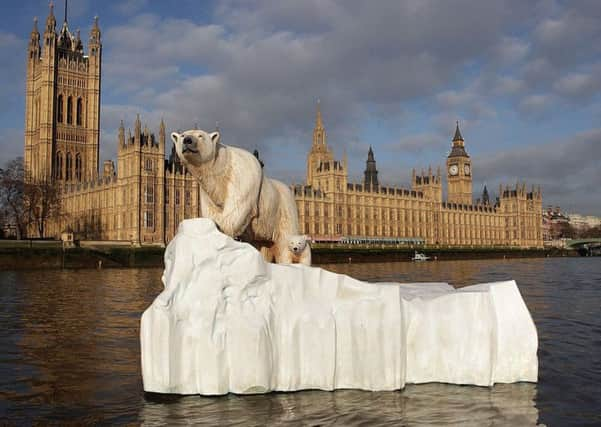Global warming heating Earth to tipping point, scientists say


The new prediction warns of temperatures rising 2C to 4.9C above pre-industrial levels by the end of the century, despite measures to reduce greenhouse gas emissions.
A rise of 2C has frequently been cited as a “tipping point” that must be avoided to prevent runaway effects leading to widespread drought, extreme weather and dangerous increases in sea level.
Advertisement
Hide AdAdvertisement
Hide AdThe same analysis shows a mere 1% chance of global warming being pegged at or below 1.5C, the target set by countries signing the Paris Agreement last year.
Dr Dargan Frierson, from the University of Washington, said: “Countries argued for the 1.5C target because of the severe impacts on their livelihoods that would result from exceeding that threshold. Indeed, damages from heat extremes, drought, extreme weather and sea level rise will be much more severe if 2C or higher temperature rise is allowed.
“Our results show that an abrupt change of course is needed to achieve these goals.”
The scientists looked at 50 years of data on world population and economic activity to come up with their forecast. One factor taken into account was “carbon intensity”, the amount of carbon emitted for each dollar of economic activity.
The approach is different from that taken by the Intergovernmental Panel on Climate Change (IPCC), whose most recent report included future warming rates based on four carbon emission scenarios.
Professor Adrian Raftery, who led the University of Washington team, said: “The big problem with scenarios is that you don’t know how likely they are, and whether they span the full range of possibilities or are just a few examples. Scientifically, this type of storytelling approach was not fully satisfying.
“Our analysis is compatible with previous estimates, but it finds that the most optimistic projections are unlikely to happen. We’re closer to the margin than we think.
“Overall, the goals expressed in the Paris Agreement are ambitious but realistic. The bad news is they are unlikely to be enough to achieve the target of keeping warming at or below 1.5 degrees.”
Advertisement
Hide AdAdvertisement
Hide AdThe findings are published in the journal Nature Climate Change.
A separate study in the same journal found that even if all fossil fuel emissions were halted this year, global temperatures were very likely to be 1.3C higher than pre-industrial levels by the end of the century.
There was a 13% chance that the Earth was already committed to 1.5C warming by 2100, said the authors led by Dr Thorsten Mauritsen, from the Max Planck Institute for Meteorology in Germany.
